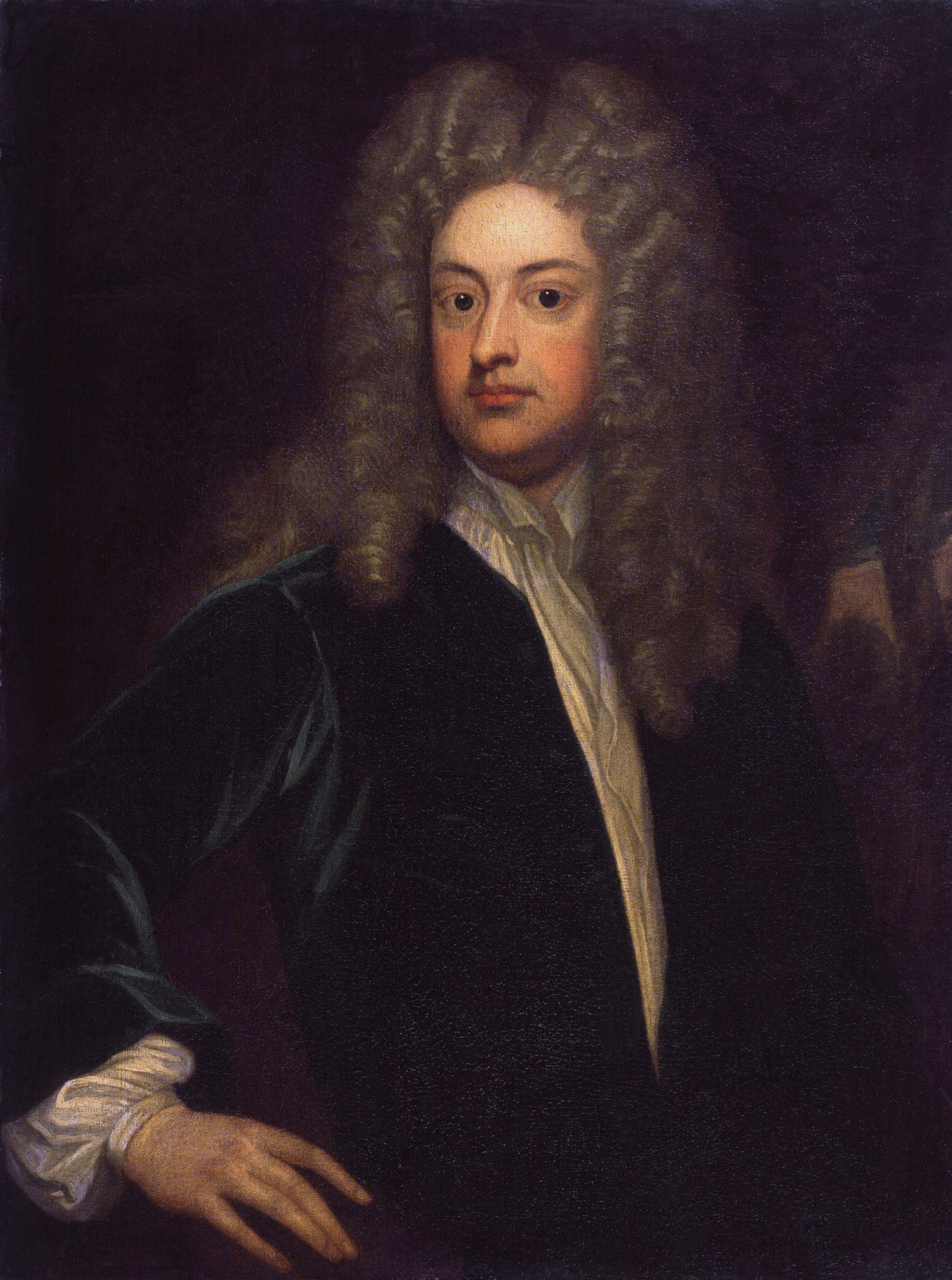Joseph Addison Berühmte Zitate
„Eine Frau fragt in Liebessachen selten um Rat, bevor sie ihre Hochzeitskleider gekauft hat.“
On askin advice in affairs of love
("A woman seldom asks advice before she has bought her wedding clothes." - The Spectator No. 475 (4 September 1712)).
„Niemand ist so unglücklich wie ein Idol, das sich selbst überlebt hat.“
The Spectator
"There is not a more unhappy being than a superannuated idol." - The Spectator No. 73 (24 May 1711)
„Noch jetzt, scheint mir, tret ich auf klassischen Boden.“
Briefe über Italien
"And still I seem to tread on classic ground." - A Letter from Italy, to the Right Honourable Charles, Lord Halifax. 1701.
„Sieh, wie friedlich ein Christ sterben kann.“
Letzte Worte zu seinem Stiefsohn Thomas Tickell, dem späteren Lord Warwick
Original engl.: "See in what peace a Christian can die." - as quoted in Conjectures on Original Composition (1759) by Edward Young
The Spectator
"We are always doing something for Posterity, but I would fain see Posterity do something for us." - The Spectator No. 587 (20 August 1714)
Joseph Addison: Zitate auf Englisch
“Nations with nations mix'd confus'dly die,
And lost in one promiscuous carnage lie.”
Quelle: The Campaign (1704), Line 152.
Moncure Daniel Conway, in The Sacred Anthology (Oriental) : A Book of Ethnical Scriptures 5th edition (1877), p. 386; this statement appears beneath an Arabian proverb, and Upton Sinclair later attributed it to the Qur'an, in The Cry for Justice : An Anthology of the Literature of Social Protest (1915), p. 475.
Misattributed
No. 185 http://archive.twoaspirinsandacomedy.com/spectator/spectator.php?line=185 (2 October 1711).
Often misquoted as "To be an atheist requires an infinitely greater measure of faith than to receive all the great truths which atheism would deny."
The Spectator (1711–1714)
“These widows, sir, are the most perverse creatures in the world.”
No. 335 (25 March 1712).
The Spectator (1711–1714)
“A woman seldom asks advice before she has bought her wedding clothes.”
No. 475 (4 September 1712).
The Spectator (1711–1714)
No. 269 (8 January 1712).
The Spectator (1711–1714)
Samuel Johnson in The Rambler, no. 148 (17 August 1751).
Misattributed
“Some virtues are only seen in affliction and some in prosperity.”
No. 257 (25 December 1711).
The Spectator (1711–1714)
“There is not so variable a thing in Nature as a lady's head-dress.”
No. 98 (22 June 1711).
The Spectator (1711–1714)
“The utmost extent of man's knowledge, is to know that he knows nothing.”
These words, sometimes attributed to Addison, are not found in his works, but in The Spectator, no. 54, he translates the following words of Socrates, as quoted in Plato's Apology: "When I left him, I reasoned thus with myself: I am wiser than this man, for neither of us appears to know anything great and good; but he fancies he knows something, although he knows nothing; whereas I, as I do not know anything, so I do not fancy I do. In this trifling particular, then, I appear to be wiser than he, because I do not fancy I know what I do not know."
Misattributed
Samuel Johnson in The Rambler no. 148 (17 August 1751).
Misattributed
Sir Alfred Jules Ayer, in his "The Meaning of Life", collected in The Meaning of Life, and Other Essays (1990).
Misattributed
No. 562 (2 July 1714).
The Spectator (1711–1714)
“Why wilt thou add to all the griefs I suffer
Imaginary ills, and fancy'd tortures?”
Act IV, scene i.
Cato, A Tragedy (1713)
“There is not a more unhappy being than a superannuated idol.”
No. 73 (24 May 1711).
The Spectator (1711–1714)
No. 476 (5 September 1712).
The Spectator (1711–1714)
No. 169 (13 September 1711).
The Spectator (1711–1714)
“The honors of this world, what are they
But puff, and emptiness, and peril of falling?”
Act IV, scene iv.
Cato, A Tragedy (1713)
No. 120 (18 July 1711).
The Spectator (1711–1714)
No. 477 (6 September 1712).
The Spectator (1711–1714)
No. 225
The Tatler (1711–1714)
No. 225
The Tatler (1711–1714)
No. 225
The Tatler (1711–1714)
No. 225
The Tatler (1711–1714)
